20. I Am Not Your Negro
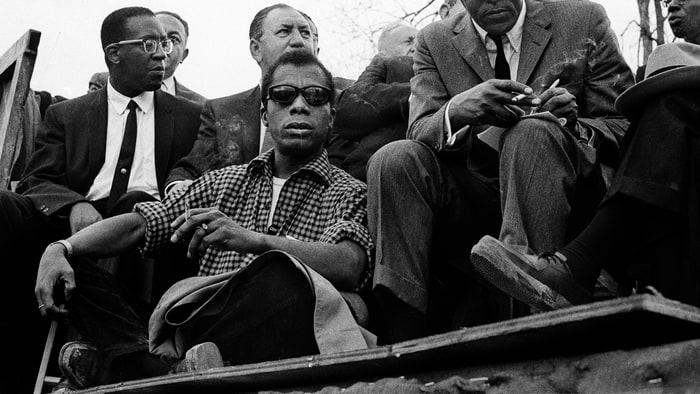
“One of the best movies you’re likely to see all year,” wrote New York Times critic A.O. Scott of Raoul Peck’s perfectly timed documentary film I Am Not Your Negro. Peck, building on an unfinished manuscript from late American novelist and social critic James Baldwin to study and assay the issue of race in the United States of America via the truncated lives of three men, martyrs of the Civil Rights movement all; Martin Luther King, Medgar Evers, and Malcolm X.
A searing work and an indictment of much that is wrong in America –– of course it’s a film that could only be made by Europeans, hmm? –– it also expertly furrows at the middle of American identity.
To continue once more with Scott’s NY Times appraisal; “You’d be hard-pressed to find a movie that speaks to the present moment with greater clarity and force.”
19. Thelma

Joachim Trier’s (Oslo, August 31st [2011], Louder Than Bombs [2015]) latest film is about a college freshman from the sticks, new to the big city, with a religious background and telekinetic powers. So yeah, of course there’s some comparisons to the Brian De Palma classic Carrie (1976) right away, but the ensuing suspense is much more akin to the Nordic tradition of Ingmar Bergman or Carl Theodor Dreyer, though fans of De Palma, and Hitchcock by proxy, will still find reason to pump their fists throughout this deeply moving thriller.
In the titular role is Eili Harboe, and she makes a real star-turn as we watch her mental and physical states unravel in a sometimes overwhelming flood of visual and thematic abstractions (coiling snakes and startling murders of crows punctuate the film with a seeable intensity) and it is a great degree of fright and fun that we see Trier (and his usual writing collaborator Eskil Vogt) loosen up, go off the rails, and freak out with flourish.
Deeply sympathetic, shockingly tender, and expressly romantic, Thelma is so much more than the supernatural thriller it initially appears to be. A coming-out tale, a coming-of-age narrative, an artful estimation of womanhood, an erratic fright flick and a reckoning, Thelma is one of 2017’s most anticipated and darkly gleaming jewels.
18. A Fantastic Woman
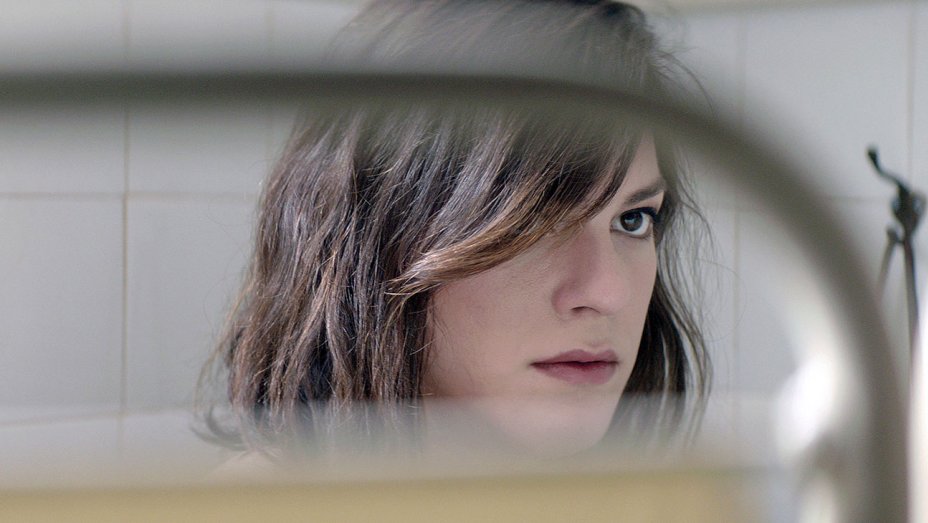
“I look at you,” says Sonia (Aline Küppenheim) to aspiring singer Marina Vidal (Daniela Vega), “and I see a chimera,” in Sebastián Lelio’s luminous new film, A Fantastic Woman.
Marina, isn’t just a struggling singer who has to make ends meet via a soul-sucking waitressing stint, she’s also transgender woman and she has just suddenly lost the love of her life, a much older (by 20 odd years) man named Orlando (Francisco Reyes).
Facing scorn and discrimination anew after Orlando’s sudden and unexpected passing (Orlando’s ex-wife, his doctor, and his adult son are adamantly untrusting of her), but she also has an inner strength and enough people on her side to help her navigate some rocky shores.
Vega’s performance is unerring and resolute and her personal process of grieving and grace underscores what the title proclaims with affection; that she’s a fantastic woman. A ravishing transgender drama and a yardstick against all such films must be measured, this is Lelio’s masterpiece.
17. The Killing of a Sacred Deer
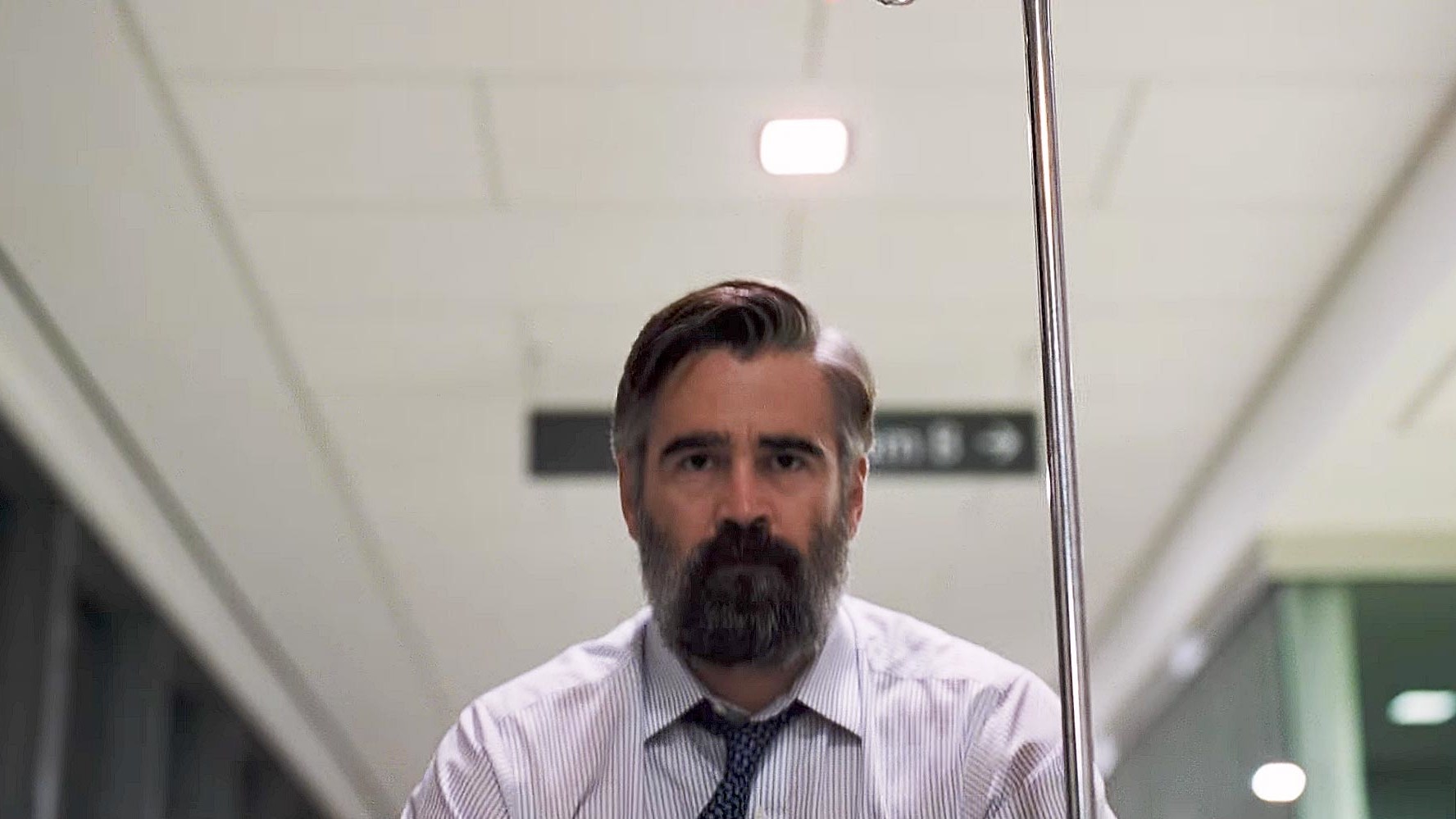
As unforgettable as it is unshakable, the fifth film from Greek filmmaker Yorgos Lanthimos, The Killing of a Sacred Deer, is an unsettling and transgressive domestic odyssey that astounds with its unrelenting menace and imaginative fluency.
Equal parts garish and gorgeous, this incendiary psychodrama tells the undone tale of renowned cardiovascular surgeon and recovering alcoholic Dr. Steven Murphy (Colin Farrell), overseer of an affluent home with a flawless family; a beautiful wife Anna (Nicole Kidman), also a medical professional; their 12-year-old son, Bob (Sunny Suljic); their 14-year-old daughter, Kim (Raffey Cassidy), even a spry pet dog.
Soon their pastoral idyll is disrupted by the presence of Martin (a creepy AF Barry Keoghan, channeling both Holden Caulfield and Alex Delarge), a 16-year-old friend and patient of Steven’s, with an unfortunate past that binds the two and will inevitably link their atrocious futures as well.
As The Killing of a Sacred Deer lurches forward, the evocative and poetic study of revenge that it conjures brazenly suggests that we, as witnesses, are the quarry just as much as the star-crossed Murphy ménage, and we are left with a meditative nightmare of kink and kin. This is a full-on horror film, make no mistake, but it’s also a bitter and jet-black tour de force.
16. Okja
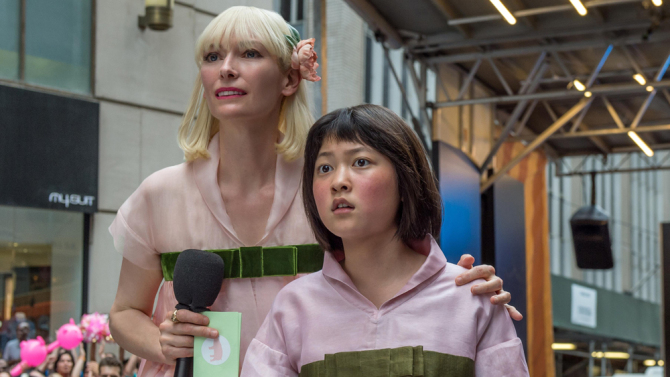
An affecting and exciting tale of interspecies friendship and atrocious truths, Okja judiciously swings from caustic action-adventure to full-on horror film with intelligence, aplomb, and a shit ton of risk-taking.
Deftly directed by South Korean filmmaker Bong Joon-ho (who co-wrote the movie with Jon Ronson), Okja continues his ever audacious mixing of tonalities in a tale that begins as a satire before surfacing as a romping comedy bubbling over with charm and considerable magnetism as we follow a young girl named Mija (Ahn Seo-hyun) and her enormous companion animal, Okja. And then Bong pulls the audience along with the looming apprehension that something unspeakable awaits Okja, a beast destined for the catastrophe of the factory farm, the killing floor, to be crushed in the cruel, profit-driven ragwheel of capitalism.
As with Bong’s previous work, most notably Memories of Murder (2003)––which contains explicit slapstick interspersed with grim melodrama––and Snowpiercer (2013)––which integrates bleak futuristic sci-fi spectacle with diverting conceptual folly––this stunning film takes many risks and results in a deeply touching treatise on animal welfare and the bonds of friendship. Don’t miss it and don’t forget the tissues, either.
15. Thirst Street
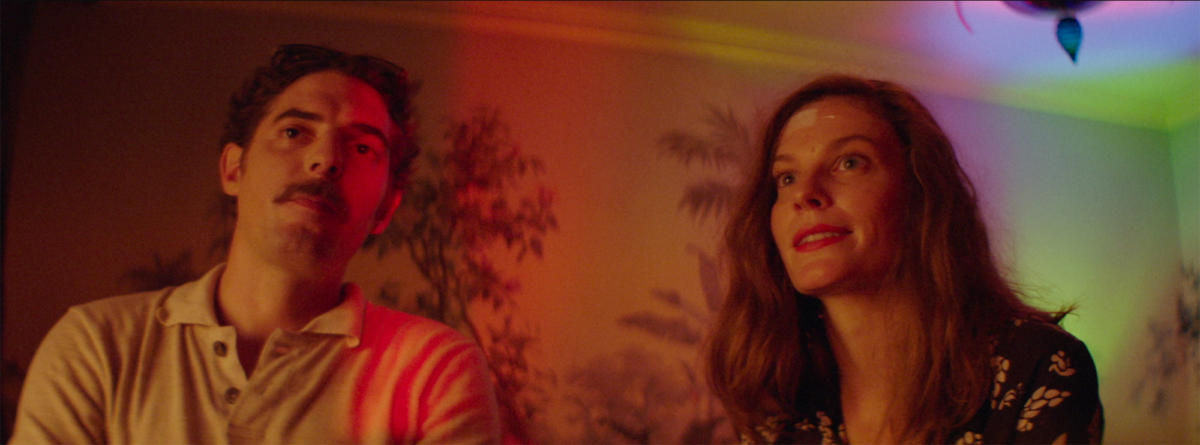
Initially, during the film’s pre-title preface the viewer is deftly launched into what feels like a keyed up Sirkian melodrama –– imagine, if you will, that Douglas Sirk did some hardcore street drugs –– before launching what nervously relaxes into an increasingly engaging, all the while unhinging, multicolored psychodrama. Sound like a trip? Trust me, Thirst Street really truly is.
Gina (Lindsay Burdge, brilliant) is an ill-fated American flight attendant in the throes of grief after having lost her love to suicide. Unable to cope and on the brink of emotional collapse, Gina finds herself with a night off in Paris where she meets the charming yet cheap gadfly, Jerome (Damien Bonnard). With a little booze and the bolstered confidence from a bribed fortune teller, Gina commits to an eager one-night stand, and here a new set of troubles are born.
Burdge is sublime as Gina, and her face can hold one hell of a close-up. Director Nathan Silver and his sterling cinematographer Sean Price Williams like to linger on Burdge, making much of Thirst Street unravel like a master class in cinematic portraiture, but that’s not all the maneuvers they’re interested in. Their visual roster includes a wealth of split-diopters, tiffany zooms, and surreal splashes of color.
As the imagery washes over the audience you’ll find stirring of moments Jesús Franco-like softcore, Old Hollywood schmaltz in a William Seiter vein (“…like something out of an old musical,” the narrator suggests), and the go for baroque kaleidoscopic overkill of Dario Argento and Mario Bava (the driving and propulsive score from Paul Grimstad also evokes feelings from their atmospheric horror films and thrillers). Is it too much? Maybe. Is it wonderfully explicit and overly expressive? Yes, absolutely.
14. Three Billboards Outside Ebbing, Missouri
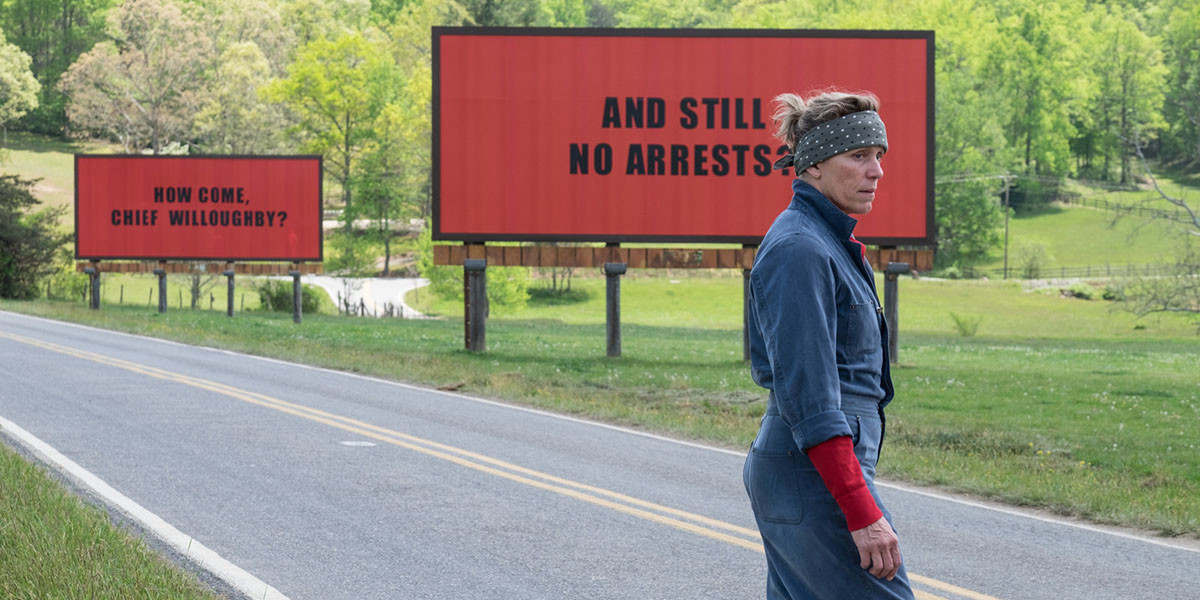
Writer-director Martin McDonagh (In Bruges [2008], Seven Psychopaths [2012]) creates a pitch-black comedy bursting with cinematic tropes and the finest and most fearless onscreen performances from Frances McDormand since Fargo.
Mildred Hayes (McDormand) is a grieving mother who, when the Ebbing police farce, er, force, fail to find a suspect in her daughter’s grisly rape and murder, purchases the eponymous three billboards to call public attention to the unsolved crime.
Amongst the now on the spot police force is ailing Sheriff Bill Willoughby (Woody Harrelson) and the racist, redneck Officer Jason Dixon (Sam Rockwell), and their community is soon polarized by Hayes’ up yours gesture.
A by turns childish and inexorable back and forth begins amongst Dixon, Hayes, and much of Ebbing, but McDonagh takes what first appears simplistic and gets more involving, articulate, and engrossing. For instance we witness Hayes’ bereavement over losing her daughter in such appalling circumstance make her unstable intolerance of the police put her at odds with her family and her next-door neighbors.
As Three Billboards gains ground McDonagh brilliantly brings hope to Ebbing, to the discriminated minorities, at-risk residents, and bigots in unlikely and excited ways. This is a film with unpredictable rhythms, wild tonal permutations, and rich right-hand gloms at redemption.
13. BPM (120 Beats per Minute)
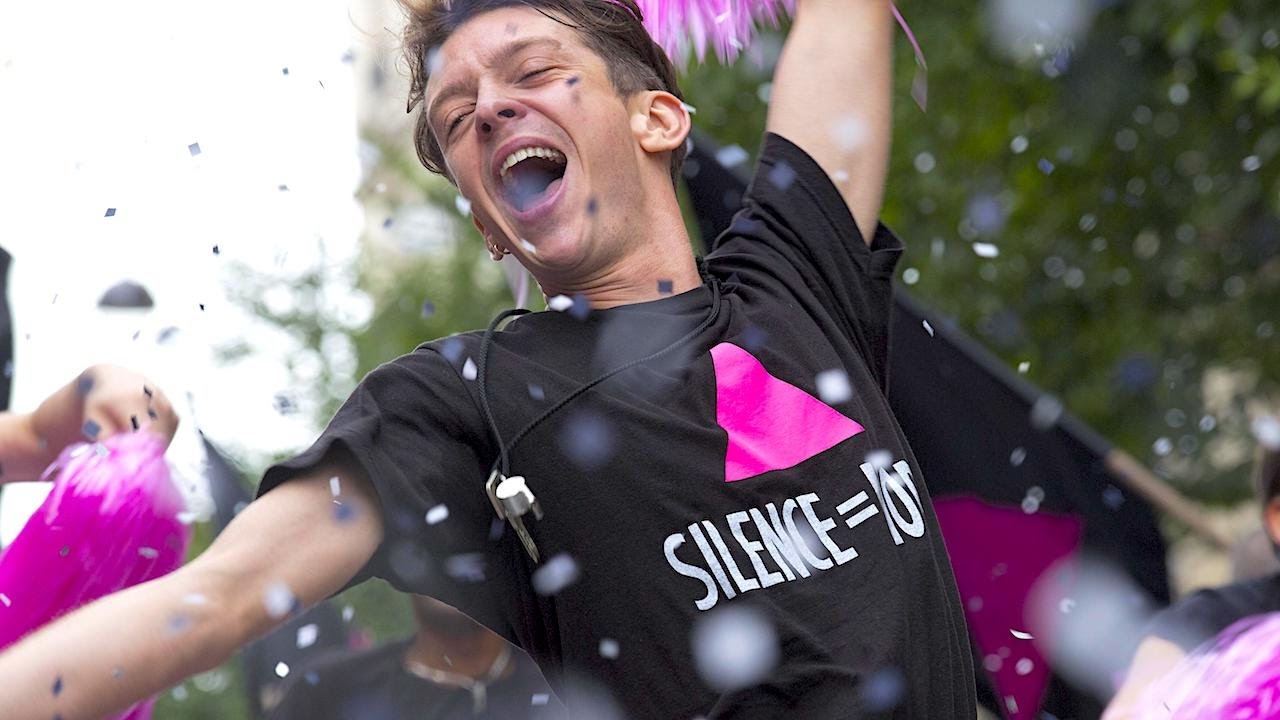
A fast-moving flight of exuberance and ecstasy set amidst the backdrop of AIDS ravaged France of the 1990s, this film is visually varied, intoxicating, romantically yearning, and tragically uptempo.
Directed by Robin Campillo, who also co-wrote the film along with Philippe Mangeot, drew largely upon their own experiences with advocacy and hospice as a part of the group ACT UP (AIDS Coalition to Unleash Power) in developing this compassionate, intelligent, and oft-times incredibly visceral story about homosexuality and the AIDS epidemic.
Shot like an existential docudrama, it’s sobering at the same time it’s celebratory, displaying tactile moments of anticipation and passion, humanity and hubris, as we attend handheld meetings where ACT UP plots affirmative action strategies and in-your-face educational campaigns with the immediacy and assumption of entering a theater of war.
A gay masterpiece, 120 Beats Per Minute is also an aching cinematic experience of universal love, loss, and struggle, intimately captured within a nurturing community.
12. A Ghost Story
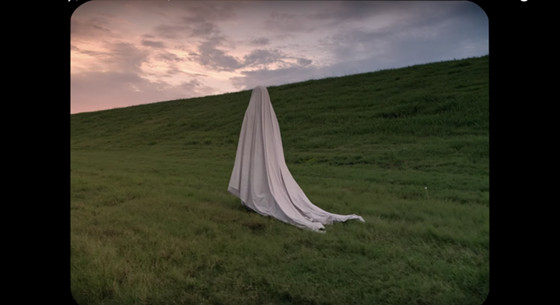
Toying with the traditional iconography associated with movies about restless spirits and the places they haunt, David Lowery’s materialistically mischievous, and altogether mesmerizing A Ghost Story does something very different as far as cinematic hauntings go.
Reuniting with his cast from Ain’t Them Bodies Saints (2013), A Ghost Story’s prologue introduces us to a married couple (including a brilliant Rooney Mara in a subdued and understated performance). We intentionally never learn too much about the two (not even their names) beyond only the broadest of strokes; he wants to stay in their newly acquired ranch-style bungalow and she wants to move out of it.
After becoming fleetingly familiar with the rhythms of their marriage and some snapshots of their biography, an offscreen car crash robs the man of his life and he’s soon a specter, draped only in a hospital sheet, haunting (though unable to interact much at all) his home and his wife. After a time, his grief-stricken bride finds the fortitude to leave the home they shared and go on, but he cannot.
An offbeat ghost story succinctly coupled with an unreadable one about love that, through obfuscation, is all about attachment, memory, and longing. A Ghost Story is an odd, artful examination of love, life, and death as glimpsed through crudely snipped eyes in ethereal linen.
11. Baby Driver
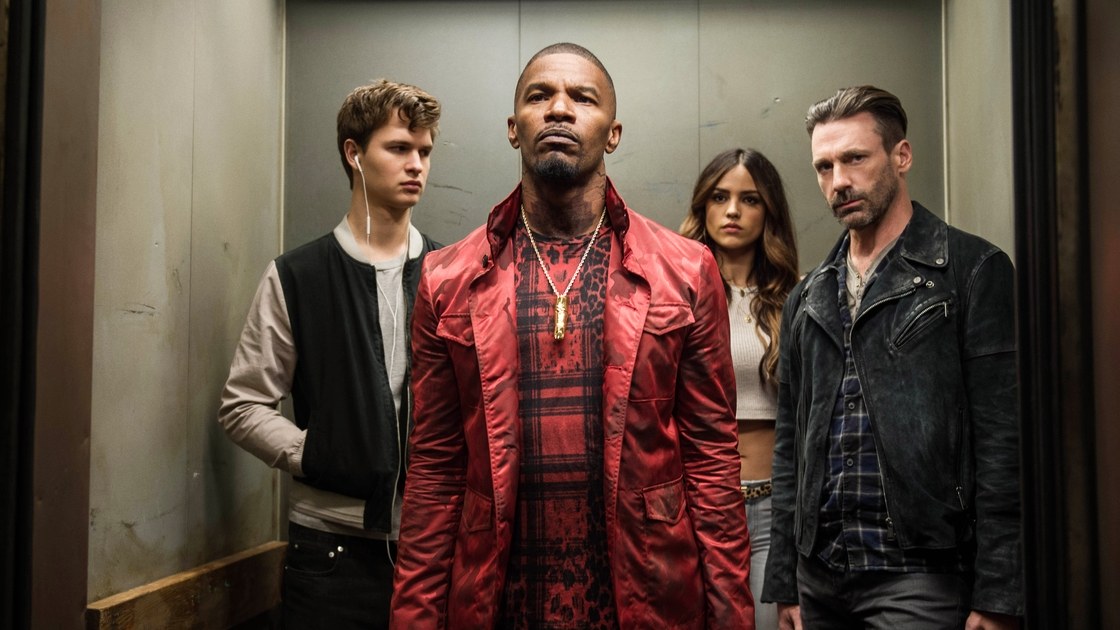
Edgar Wright’s (Shaun of the Dead [2004], Hot Fuzz [2007]) noir-tinged new movie Baby Driver is a playful pastiche of musical romance, comedy, and crime caper that exudes charm, creativity, and craft in what may well be his finest and most fun film to date (and if you’re familiar with Wright’s CV, that’s really saying something).
Projecting the charisma of a contemporary James Dean, Ansel Elgort is Baby, a rebel with a car who also happens to be one heck of a talented getaway driver. Baby has been blackmailed for years into working for a crime boss named Doc (Kevin Spacey, who’s admittedly hard to watch in light of his real-life predatory habits which surfaced after the film’s release, so at least it’s easier to loathe his character’s shady personage as a result), but he’s also found a reason to smile thanks to Deborah (Lily James), his dream girl.
Tout de suite Baby, who’s forever at his best behind the wheel owing to his personal playlist soundtrack via his ever present iPod, must face the proverbial music as an ill-omened heist jeopardizes his future with Debora, and maybe even his very life.
The game cast includes Jon Bernthal, Sky Ferreira, Jamie Foxx, Eiza González, and a campy Jon Hamm in unkillable slasher mode, the real star of Wright’s joyous, music-saturated, car chase odyssey may just be editors Paul Machliss and Jonathan Amos. The dynamite soundtrack––one of the year’s very best––which dictates so much of the movie’s many celebrated car chases just astound and overwhelm the viewer. Inventive and complex visuals, the spatial relationships between the vehicles, the forward strut of Baby behind the wheel, and the kinetic stimulus of it all makes Baby Driver a luxury to lay eyes on.